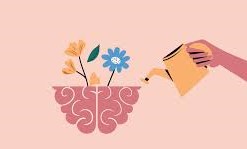Introduction
Family and community support are fundamental to mental health, serving as essential pillars that uphold emotional well-being. In times of stress or mental health challenges, a robust support system can significantly impact recovery and resilience. Studies show that individuals with strong familial and community ties often experience better mental health outcomes compared to those who lack such support. This post explores the importance of family and community support, effective strategies to cultivate these networks, and how Jeevan Jyoti Dawakhana can assist you.
The Importance of Family Support
Family often serves as the first line of defense in mental health support. When a family member faces challenges like depression or anxiety, emotional support, understanding, and practical assistance from family members become invaluable.
- Emotional Stability: Family members provide a safe space for individuals to express their feelings, reducing feelings of isolation. Open communication can lead to better coping strategies and a more positive outlook on life.
- Practical Assistance: Family can help with daily tasks that may become overwhelming, such as household chores or attending appointments, allowing individuals to focus on their mental health.
- Education and Awareness: Educating family members about mental health fosters a supportive environment. Understanding the challenges helps family members respond with empathy and patience, promoting recovery.
Community Support Networks
Community support plays a crucial role in promoting mental health. Engaging with local organizations and support groups provides individuals with additional resources and companionship.
- Building Connections: Community engagement allows individuals to connect with others facing similar challenges, significantly reducing feelings of loneliness.
- Access to Resources: Communities often have resources for mental health challenges, including counseling services and educational programs. The National Alliance on Mental Illness offers resources and support for various mental health conditions.
- Crisis Intervention: Communities can offer immediate support during crises, making timely assistance crucial.
The Role of Support Groups
Support groups can be vital in the journey toward mental wellness. They offer safe spaces for individuals to share experiences and learn from each other.
- Shared Experiences: Sharing stories with others fosters camaraderie and reduces isolation. Support groups help individuals feel connected and understood.
- Skill Development: Many support groups focus on developing coping skills, allowing participants to gain insights into effective mechanisms.
- Increased Awareness: Support groups empower individuals to take an active role in their treatment and recovery.
Strategies to Enhance Family and Community Support
Building strong support systems requires intentional effort and communication. Here are strategies to enhance these networks:
- Open Communication: Encourage family discussions to express feelings and concerns.
- Participate in Community Events: Engage with local organizations to connect with others and strengthen community ties.
- Educate Family and Community Members: Provide educational resources about mental health to promote better understanding.
- Utilize Online Resources: Leverage online platforms to find virtual support groups and community resources.
- Seek Professional Help: Involve mental health professionals for guidance and support.
Conclusion
Family and community support are essential for maintaining mental health. They contribute to healthier, happier lives and serve as critical resources in times of need. At Jeevan Jyoti Dawakhana, we recognize the importance of these support structures and offer holistic approaches to health that encompass family involvement and community engagement. If you or someone you know is struggling with mental health challenges, we are here to help.
For additional resources on holistic health and wellness, visit Jeevan Jyoti Dawakhana.



